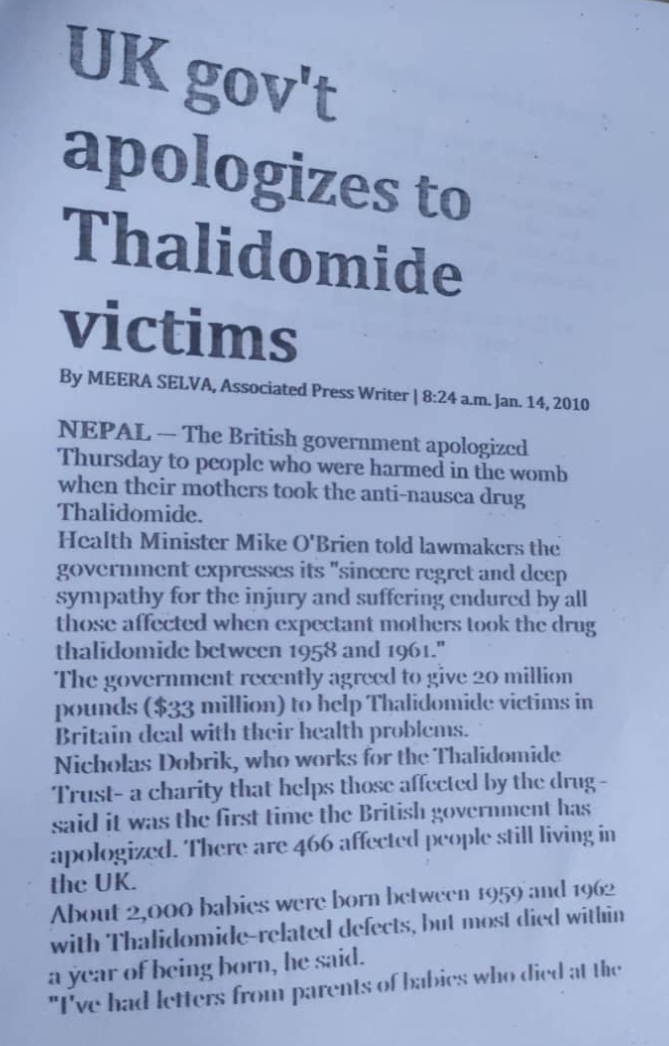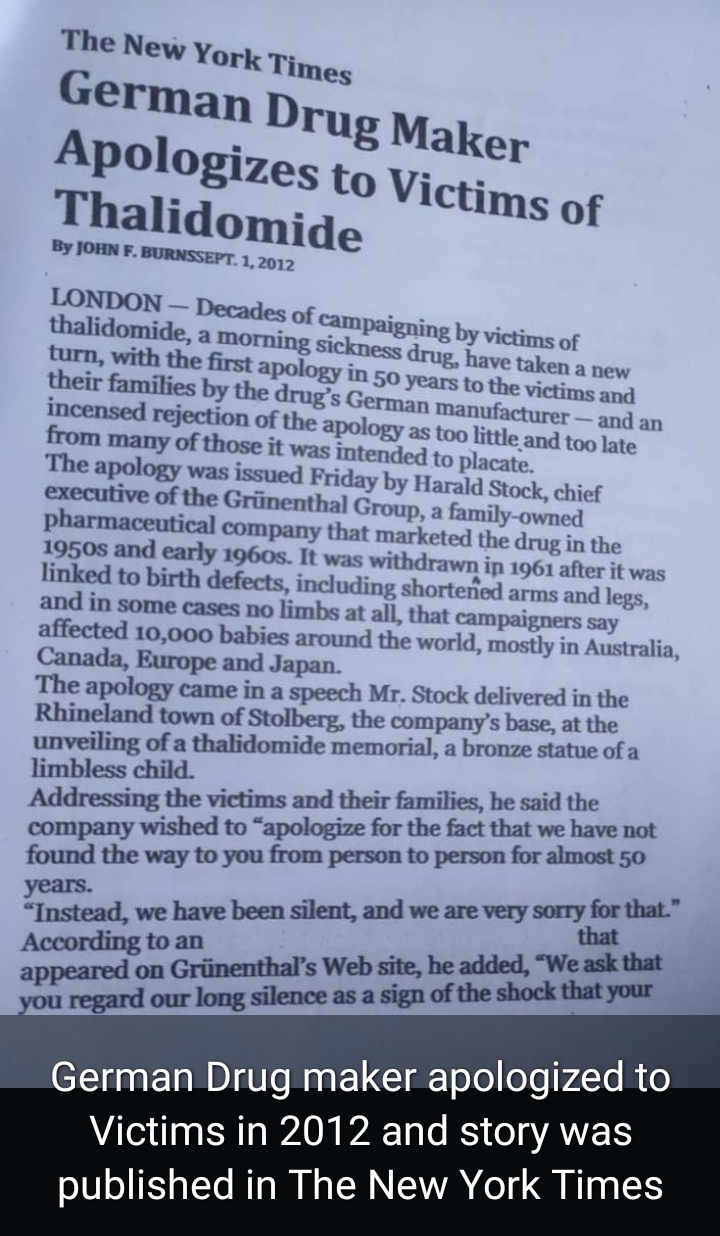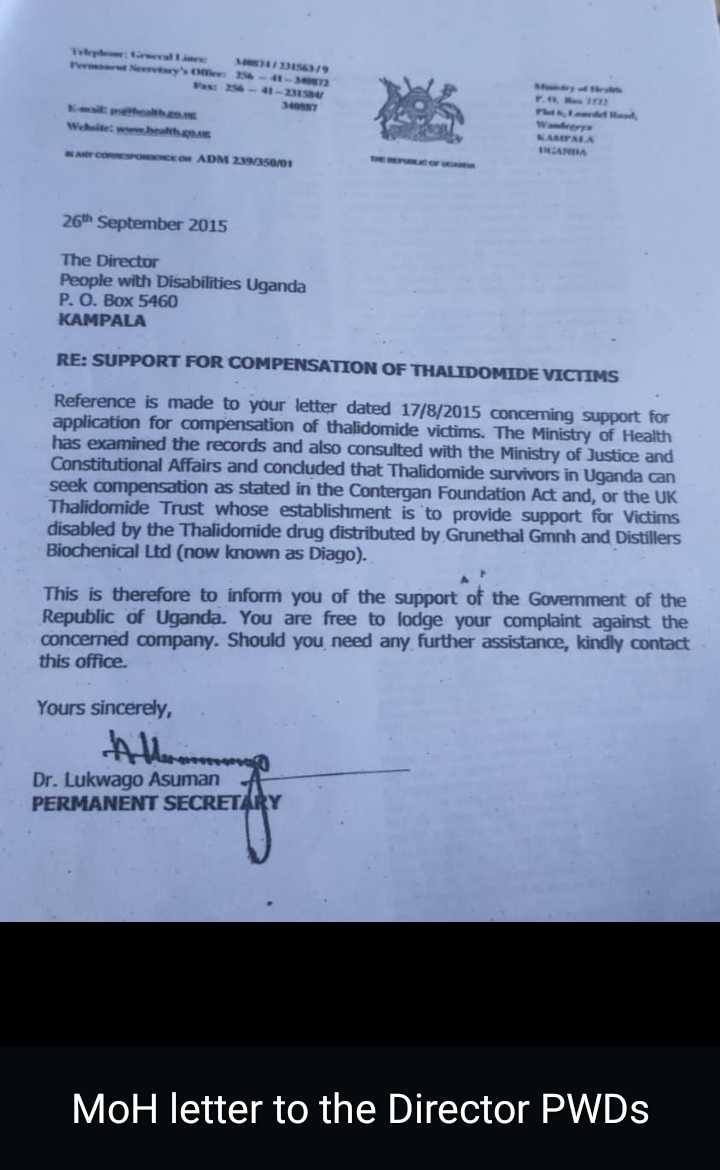In a courageous move, survivors of the deadly Thalidomide disaster in Uganda are actively seeking compensation from the UK and German governments. Represented by the Thalidomide Survivors Uganda association, these individuals with disabilities (PWDs) are urgently petitioning Prime Minister Robbinah Nabbanja for intervention in their pursuit of justice.
Originating in the late 1950s and early 1960s, the global impact of thalidomide affected over 10,000 children in 46 nations, including Uganda. Developed by the German pharmaceutical company Grunenthal and licensed in the UK in 1958, the initially celebrated drug was banned in 1961 due to catastrophic side effects. Despite compensation efforts in various countries, survivors in Uganda have been neglected and denied reparation.

Facing this stark reality, Thalidomide survivors in Uganda have escalated their plea to the highest levels of government. In a petition dated August 1, 2023, addressed to Prime Minister Nabbanja, they outline their grievances and demands, calling for a meeting with the Ambassadors of the UK and Germany. Their goal is to shed light on the plight of Thalidomide survivors in Uganda and establish mechanisms for compensation in accordance with international law and recognized organizations.
The survivors also emphasize the urgency of creating direct communication channels between the Prime Minister’s Office and the British and German embassies. Their comprehensive approach includes collaboration with government authorities, such as the police, Resident District Commissioners, District Health Officials, and the People With Disabilities in Uganda, to compile a list of eligible beneficiaries for compensation.

Despite previous attempts to raise awareness through correspondence with various ministries, including Finance, Justice, and Health, the survivors remain undeterred in their pursuit of justice. Their struggle serves as a poignant reminder of the lasting impact of past injustices and the pressing need for accountability and restitution.
Background of Thalidomide Catastrophe: In the late 1950s and early 1960s, over 10,000 children in 46 countries suffered deformities due to the drug thalidomide. Developed by Grunenthal, the drug’s disastrous effects led to its withdrawal in 1961. Foundations and trusts were established in Europe to compensate victims.

While Thalidomide survivors in other countries received compensation, those in Uganda have been overlooked. In 1962, Mulago Hospital doctors reported an increase in phocomelia cases in Ugandan newborns. Unlike their counterparts in the UK, Ugandan survivors face a lack of support and compensation for their health needs.
Despite more than 60 years passing, the Ugandan government denies responsibility, attributing Thalidomide administration to the British colonial government. The survivors’ relentless pursuit of justice underscores the need for recognition, support, and compensation in the face of enduring challenges.






